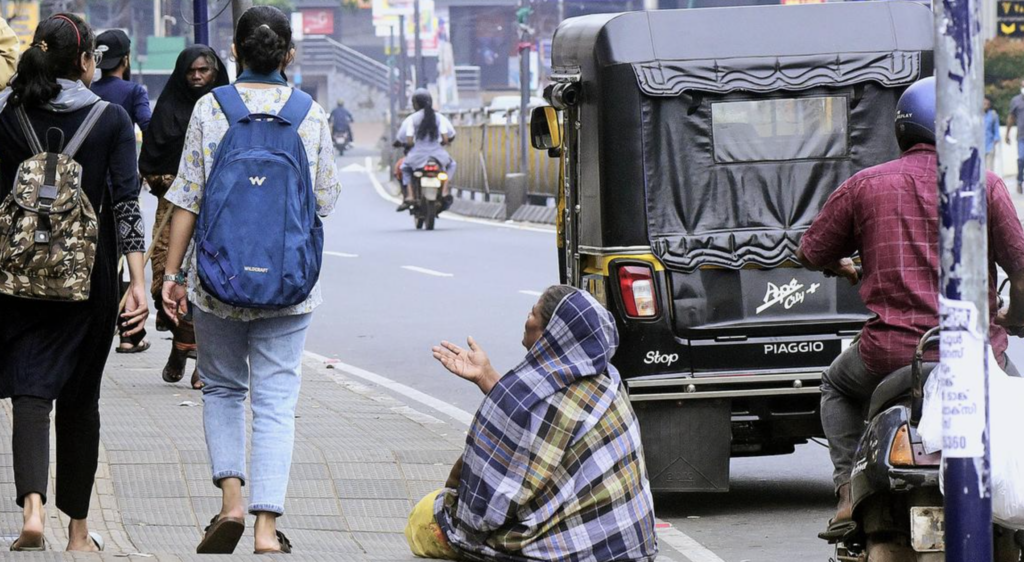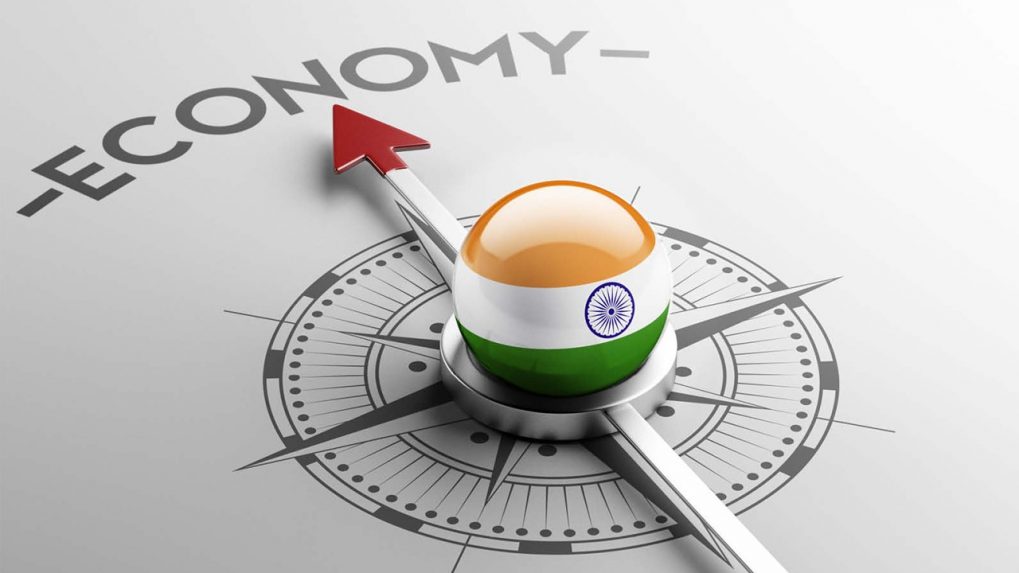- Courses
- GS Full Course 1 Year
- GS Full Course 2 Year
- GS Full Course 3 Year
- GS Full Course Till Selection
- Answer Alpha: Mains 2025 Mentorship
- MEP (Mains Enrichment Programme) Data, Facts
- Essay Target – 150+ Marks
- Online Program
- GS Recorded Course
- Polity
- Geography
- Economy
- Ancient, Medieval and Art & Culture AMAC
- Modern India, Post Independence & World History
- Environment
- Governance
- Science & Technology
- International Relations and Internal Security
- Disaster Management
- Ethics
- NCERT Current Affairs
- Indian Society and Social Issue
- NCERT- Science and Technology
- NCERT - Geography
- NCERT - Ancient History
- NCERT- World History
- NCERT Modern History
- CSAT
- 5 LAYERED ARJUNA Mentorship
- Public Administration Optional
- ABOUT US
- OUR TOPPERS
- TEST SERIES
- FREE STUDY MATERIAL
- VIDEOS
- CONTACT US
Indore Became India’s First Beggar Free City
Indore Became India’s First Beggar Free City
16-05-2025

Introduction
- Recently, Indore was declared India's first beggar-free city after a year-long campaign that began in February 2024.
- It has been recognised by the Union Ministry of Social Justice and Empowerment and World Bank.
What is Begging?
- Begging means asking people for money, food, or help, usually on the streets, without giving anything in return.
- Begging is generally associated with individuals experiencing extreme poverty, homelessness, or lack of employability.
- As per Census 2011, there are 4,13,670 beggars and vagrants in the country.
Historical Context and Legislative Framework
- Colonial Begging Laws: During colonial times, beggars were seen as a threat to society, especially by the British.
- Vagrancy and Europeans: Many unemployed Europeans in India became beggars. The term "vagrant" was used mainly for them.
- First Vagrancy Bill (1869): Drafted by Henry Maine, it aimed to reduce vagrancy, especially among Europeans, calling it a political danger.
- European Vagrancy Act, 1824: Targeted European beggars. If they begged despite having money, or begged rudely, they were punished with jail time up to 3 months for repeat offenders.
- Bombay City Police Act, 1861: This law punished all types of begging, including forcing others or children to beg.
- Bombay Prevention of Begging Act, 1959: It tried to reform beggars by teaching them skills, but it still treated begging as a crime and had no support for beggars after release.
- Section 125 of CrPC (1973): This law helps make sure that wives, parents, and children get money for their basic needs if they can’t support themselves.
- It is meant to stop them from being forced to beg due to poverty.
- CrPC Section 363A: Using children for begging is a serious crime.
- Kidnapping or injuring a child to force them to beg can lead to 10 years to life in prison.
- Other Anti-Begging Laws: Several state laws like the Madras City Police Act (1888), Bengal Vagrancy Act (1943), and others punished begging or provided ways to control it.
Operational Framework of the Campaign
- Awareness First: In the first step, the government made people aware that begging is a big problem. People were told not to give money to beggars.
- Rehabilitation: After that, beggars were given help to find jobs and live with dignity. Children were enrolled in schools.
- Special Cases: Officials found that some beggars were coming from Rajasthan just to beg in Indore. Action was taken against such cases.
Strict Rules in the City
- Begging is now banned in Indore.
- Even giving money to beggars or buying things from them is not allowed.
- Three FIRs (police complaints) have already been registered for breaking these rules.
Constitutional Provisions
- The criminalization of begging raises significant constitutional concerns.
- Article 21 of the Indian Constitution guarantees the right to life and personal liberty, which encompasses the right to live with dignity.
- This article has been interpreted by the Supreme Court to include the right to live with dignity and the right to livelihood.
- Article 14 ensures equality before the law, yet anti-begging laws often lead to discriminatory practices against marginalized groups.
- The article argues that these laws fail to align with the constitutional mandate of promoting social justice and human dignity.
- Right to Livelihood: The Constitution gives every citizen the right to earn a decent living and protects their social and economic rights.
- Human Dignity: Human rights include the right to live with dignity. Poverty affects human dignity and is linked to basic human rights.
- International Support: Like the United Nations works for human rights globally, the Indian Constitution protects the rights of both citizens and non-citizens at the national level.
- Welfare State: India is a welfare state, and the Constitution promises every person the right to life and personal liberty.
- The article argues that these laws fail to align with the constitutional mandate of promoting social justice and human dignity.
- Article 23: Protects people from forced labour and exploitation, including beggary and human trafficking.
Legal References
- Bharatiya Nagrik Suraksha Sanhita (BNSS) Section 163(2) completely prohibits begging, giving alms or purchasing any items from beggars.
Judicial Interventions and Recommendations
- The judiciary has occasionally intervened to address the constitutional issues arising from anti-begging laws.
- For instance, in the case of Harsh Mander v. Union of India, this article has been interpreted by the Supreme Court to include the right to live with dignity and the right to livelihood.
- Court declared certain provisions of the Bombay Prevention of Begging Act, 1959, unconstitutional, recognizing that criminalizing begging violates fundamental rights.
- The article advocates for a shift from punitive approaches to rehabilitative and welfare-oriented strategies.
- It suggests that the government should focus on addressing the root causes of begging, such as poverty, unemployment, and lack of access to education and healthcare.
Law Commission of India’s View
- The 223rd Report of the Law Commission of India says that poverty is caused by social and economic system failures, not because individuals are incapable.
International and Legal Perspectives on Begging
- The United Nations Human Rights Council (UNHRC) supports structural solutions (like social support systems) instead of criminalising begging.
- UNHRC states that excluding people because of poverty violates human rights.
Importance of SMILE Scheme
- The Ministry of Social Justice and Empowerment has launched an umbrella scheme “SMILE - Support for Marginalized Individuals for Livelihood and Enterprise” on 12th February, 2022.
- It includes two sub-schemes:
- Central Sector Scheme for Comprehensive Rehabilitation for Welfare of Transgender Persons
- Central Sector Scheme for Comprehensive Rehabilitation of persons engaged in the act of Begging.
- This umbrella scheme covers several comprehensive measures including welfare measures for both transgender persons and persons who are engaged in the act of begging with focus extensively on rehabilitation, provision of medical facilities, counseling, education, skill development, economic linkages etc.
Conclusion
Indore’s campaign to stop begging focuses on helping people find jobs and sending children to school instead of punishing them. Laws should protect the dignity and rights of all citizens, especially the poor. Instead of criminalizing begging, the government must address poverty and provide social support. Rehabilitation and welfare are the best ways to help marginalized individuals live with dignity.
|
Also Read |
|
UPSC Foundation Course |
|
| UPSC Monthly Magazine | CSAT Foundation Course |




